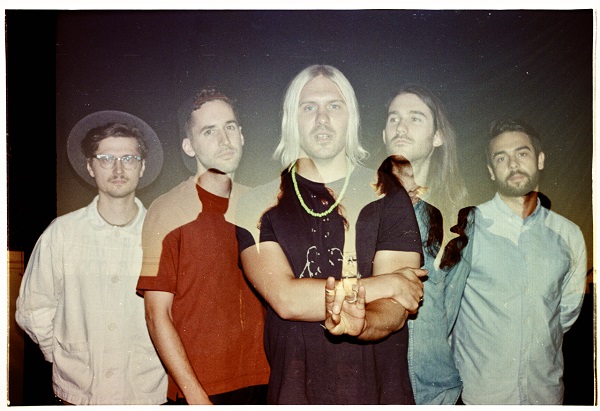Motopony
While reading a book called "The Spell of the Sensuous" by David Abrams, Daniel Blue came across a shamanic tradition that suggested that animals, plants, tools, and even stones have a kind of perception and they echo what they are offered. It was suggested that a life lived in poor relationship with the world around oneself was perhaps the cause of sickness, war and suffering in the world.
Seeing the earth burning and taking this to heart, Blue decided to experiment with the theory and attempt to "have a relationship" with his (rather small) motorcycle. He called it "Pony", spoke to it as if it were alive and tried his best to respect it as a living thing or at least as a part of life as a whole. Of that time he said, "It changed me forever riding my bike that way. It was undeniably more enjoyable to coax and caress the machine like a friend rather than take it for granted like a meaningless gathering of extruded metals, rubbers and gasses. I began to see myself as part of the world and not just a user of it." The resulting joy and empowerment of that experience was infectious and thrilling to Blue, and he coined the term "Motopony" in celebration of the revelation. From then on, he began to use the word Motopony to define any tool that he used respectfully with a relational intention of healing himself and the world around him.
A dark night not long after, mourning an anniversary of the early death of his late mother Kathleen Antoinette, Daniel reached for a broken guitar he had purchased some years earlier and leaned into it with all of his soul. "I had a great need for that guitar to release me from the despair and doom that I was feeling. Somehow I believed that this guitar also needed me to strip it of its extra strings and tune it in triad to the timbre of my untrained voice. We had a conversation, and in my grief, we fell deeply into love." That night he sang a poem he had not yet written, "Hero's Lullaby" and came to call the guitar "Old Blue".
From that moment on Daniel threw everything he had and everything he was into song and music. He closed his event space and warehouse, sold his burgeoning fashion design business, disavowed himself of nearly all possessions and began to couch surf so that all of his time could be devoted to learning the craft of music. Within a year Daniel had partnered with a local hip hop producer named Buddy Ross and an eponymous"glitch-folk" album was already finding itself on noncom airways all over the world. Motopony was born.
The band immediately found home on the road with multiple US tours and dates all across the UK. An EP with a full-length followed, owning its roots to the iconic Abbey Road studios. Jetting to Indian festivals and entertaining their international fan base, the band grew in popularity.
Wrapping up their third full-length release Daniel believes that he is perhaps just now hitting his stride as a musician, a businessman-by-proxy, and a leader of a band. "The system that surrounds music and the industry that we have created to sustain musicians and the people who work to support them; it is also a tool that can be used with intention. It's complicated, but I still believe that it's possible to be in a respectful, intentional healing relationship with the music industry. It is, after all, a thing we ourselves have created, and therefore a part of the whole that is life. It can be loved." Perhaps this is what he means when he sings "I still believe in the magic babe" in the upcoming song "A Little Death".
"I will probably never stop looking for the magic that I found reaching into that broken guitar for help and for a friend. The effort, intention and desire were not wasted. Something...some third party came along and allowed it. To me this third party is the source of creativity, and is very difficult to define but I see it as an experiential partnership, a relationship with something spiritual. What may seem foolish to some, that leap into “hope in spirit to collaborate”, this is what Daniel sings of in one of the singles off the upcoming record "When We Were Young" when he says, "we were dumb enough to try."
Daniel took this idea of “playing dumb” and being willing to throw yourself into experimentation for the sake of a dream to an extreme on this third full-length record. The new band echoes this seeker’s journey with long wistful interludes woven between sharp and neat trippyfolk inspired rock gems. Like living quartz crystals growing out of flowing canyon walls, catchy inspired psyche-pop singles hide amidst the foliage of a free-spirited kaleidoscope of unhinged compositions. Biting lyrics mock the information age while admitting their home in it, and love and relationships are a carefully crafted theme.
When asked about the environmentalist overtones and rather ominous title Blue says, "In a way this is my warning to the people of earth (or at least the people of USA) but many of these songs feel like I'm listening to them 150 years from now...like when people look back to this time and say, "what the fuck were they thinking letting everything go so long?" I want them to hear in this record that some of us weren't blindly following or distracted by what some idiot tweeted that morning. We called out. We resisted. We tried to turn things by loving the machine and not just using it. We raised our voices in dissent. I also see the sentiment behind “50 Katrinas” as hopeful in two ways: my fantasy that people on the earth will be around in 150 years, and that our music will still be, you know....out there."

